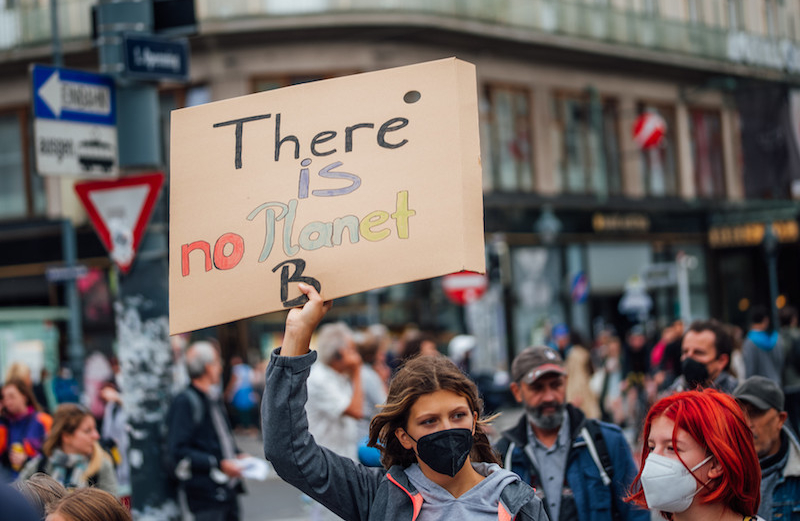If you are sad, angry or fearful about climate change, you are not alone, according to the initial results of a recent study on climate change anxiety among environmentally engaged people.
The Focus Group Investigation of Climate Change Anxiety Among Environmental Activists was conducted in 2020 by the University of Kansas Department of Psychology and The Resilient Activist, a non-profit organization founded by Sami Aaron in response to the suicide of her son.
“My son worked as an environmental activist for many years and could no longer handle the deep grief and sense of impending ecological destruction,” said Aaron. “More and more studies are emerging on the negative emotional effects of climate change on the general public, but few have examined the unique perspectives of activists.”
The newly released study involved 14 focus groups with 46 community members in the Kansas City, MO-KS / Lawrence, KS metro areas. The study reported on the participants emotions, behaviors and perceptions of the climate crisis.
The majority of participants reported feeling sad, angry and frustrated about climate change and environmental degradation. Participants also reported feelings of hopelessness, anxiety, fear, guilt and numbness.
“The biggest thing is that it saddens me to think that humanity can be this disinterested or blind to the consequences of our actions,” said one participant in the follow-up anonymous survey.
Participants said “seeking nature” was a top coping tactic when dealing with their anxiety. Other suggested strategies were “incremental progress” and “seek like-minded others.” Participants also sought positive information, community collaboration, engaging in the political process and reflecting on progress.
“What do I have control over right now? What can I do? Because I can’t stop the wildfires,” said one participant. “It’s so important for me to spend time in as many green spaces as I can,” said another.
When asked what community organizations can do to help with the climate crisis, participants gave these suggestions:
- Offer practical steps for people
- Community education
- Offer space for community connection
- Offer a safe space for emotions/concerns
- Keep climate on the radar
- Be part of a “tipping point”
“People, and especially younger people, feel anxiety about climate change all around the globe,” said Trevor Lies, one of the KU researchers who conducted the study. “Clinical and community psychologists are increasingly attuned to the psychological impact of both past and impending climactic events and whether communities are prepared to endure what is to come.”
In response to the results, The Resilient Activist is starting a free Climate Café to help participants find support with others. Facilitators will include a climate-aware therapist. The inaugural Climate Café will be held virtually from 6:30 – 8 p.m. on Tuesday, March 1. Register at The Resilient Activist.
Additionally, The Resilient Activist is finalizing a research study with an intervention protocol through the Department of Psychology at Kansas City University’s College of Osteopathic Medicine. The 10-week research study, Becoming a Resilient Activist – Mindfulness and Resilience Training, will begin in May and explore concepts of burnout, compassion fatigue, climate grief, and instruction in guided relaxation, breathing practices, meditation and community building, said Aaron. The organization is fundraising for additional studies.
To see the complete report, go to Climate Change Anxiety Focus Groups.
Photo: Ivan Radic / CC
